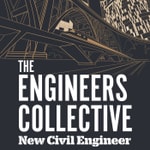The Engineers Collective – Détails, épisodes et analyse
Détails du podcast
Informations techniques et générales issues du flux RSS du podcast.

The Engineers Collective
New Civil Engineer
Fréquence : 1 épisode/23j. Total Éps: 99

Classements récents
Dernières positions dans les classements Apple Podcasts et Spotify.
Apple Podcasts
🇬🇧 Grande Bretagne - techNews
02/08/2025#27🇬🇧 Grande Bretagne - techNews
01/08/2025#17🇬🇧 Grande Bretagne - techNews
31/07/2025#13🇬🇧 Grande Bretagne - techNews
30/07/2025#28🇬🇧 Grande Bretagne - techNews
29/07/2025#51🇬🇧 Grande Bretagne - techNews
28/07/2025#89🇬🇧 Grande Bretagne - techNews
27/07/2025#71🇬🇧 Grande Bretagne - techNews
26/07/2025#54🇬🇧 Grande Bretagne - techNews
25/07/2025#32🇬🇧 Grande Bretagne - techNews
21/07/2025#91
Spotify
Aucun classement récent disponible
Liens partagés entre épisodes et podcasts
Liens présents dans les descriptions d'épisodes et autres podcasts les utilisant également.
See all- http://www.bentley.com
19 partages
- http://www.bentley.com/
17 partages
Qualité et score du flux RSS
Évaluation technique de la qualité et de la structure du flux RSS.
See allScore global : 68%
Historique des publications
Répartition mensuelle des publications d'épisodes au fil des années.
Building a railway fit for the future with East West Rail
Épisode 87
mercredi 31 juillet 2024 • Durée 59:52
The latest episode of The Engineers Collective from New Civil Engineer is all about the development and construction of East West Rail (EWR), the brand new railway being built between Oxford and Cambridge. Our interviewee is former East West Rail Company innovation manager Daisy Chapman-Chamberlain, who was involved with all the future-facing elements of this exciting project. It should be noted that since this interview was recorded in early May she moved on to a new role at Transport for the North.
Nevertheless, Chapman-Chamberlain’s insights about the way that EWR has been designed and specified to be a “railway fit for the future” are still relevant and pertinent not only to this project but to all railway developments. We also broaden out the conversation to hear her valuable insights on the state of the UK rail sector, innovating to improve areas including efficiency and accessibility, the challenges of inclusion and diversity in the rail sector and the prospect of rail reform.
Prior to the interview section, NCE news editor and podcast host Rob Hakimian chats with senior reporter Tom Pashby about the first weeks of the new government and what the infrastructure, energy and railway Bills announced in the King’s Speech signal to the civil engineering sector.
The Regenerative Structural Engineer and Infrastructure related pledges in the UK General Election
Épisode 86
mercredi 26 juin 2024 • Durée 01:15:27
In the new episode the we meet the authors of new book The Regenerative Structural Engineer, Oliver Broadbent and James Norman. The book, published by the Institution of Structural Engineers, draws on the two authors’ years of experience of civil and structural engineering. Today, Oliver is founder and co-leader of regenerative engineering training Constructivist and James is professor of sustainable design at the University of Bristol.
Their passion for engineering and helping to promote the inherent benevolence of the vocation is clear in our discussion. We talk about the process of writing and designing The Regenerative Structural Engineer then dive into some of its themes including regenerative thinking, the construction site as a system, learning from living systems and transitioning to a future where healing the environment is a natural outcome of design, construction and engineering.
Prior to that, the NCE team discusses the infrastructure related pledges in the manifestos of the major UK political parties as we build towards the General Election.
How cloud based data management is improving delivery of major infrastructure projects
Épisode 77
mercredi 27 septembre 2023 • Durée 44:04
Over recent years we have all seen our pictures, music and other prized documents migrate to the cloud, which has presented a new kind of convenience and accessibility.
The same is true in the construction industry, where some projects have seen vital documents, plans and information become stored on a shared cloud. This increases the ways that these documents can be accessed and also ensures that everyone is working from the same update, rather than sifting through various downloaded versions that might not tally with what other people on the project are referencing.
In this episode, former NCE editor Claire Smith and NCE assistant news editor Rob Hakimian are joined by AtkinsRéalis chief geotechnical engineer Simon Miles and AtkinsRéalis senior 3D geological modeller and spatial data specialist Stephanie Boffey-Rawlings to discuss the adoption of cloud-based data management in the ground engineering sector specifically.
Claire starts the podcast with some interesting figures about uptake of the cloud among geoprofessionals, collected from a recent survey carried out by subsurface software firm Seequent. These show that the desire for the transition to the cloud is there, but there are perceived barriers.
We then move on to our discussion with Stephanie and Simon, who start by giving an overview of how cloud-based data management is used on civil engineering projects and the benefits it brings such as a single source of truth and greater collaborative working. They also discuss their own experience with overcoming the barriers to its implementation, but the ultimate benefits it has brought in comparison to traditional data management.
Stephanie and Simon later discuss specific projects, such as the M25, and how it augments every stage of a scheme from design through to delivery. They discuss the lessons learned and how receptive people have been to the change.
Finally, we look into the future to discuss where cloud-based data management could guide the future of civil engineering.
The Engineer’s Collective is powered by Seequent, the subsurface software specialists.
Around the world, teams are using PLAXIS, OpenGround, Leapfrog Works, and GeoStudio to design, build and operate safe, sustainable, and long-lasting infrastructure, from roads to rail, bridges to tunnels, and buildings, dams and levees.
Find out more at seequent.com/civil.
How smart data could improve flood management to create climate resilient infrastructure
Épisode 76
mercredi 30 août 2023 • Durée 51:11
Urban populations are growing while climate change means both droughts, as well as sudden intense rainfall events, are on the rise. However, existing urban infrastructure in UK has not caught up with the water management challenges presented by these scenarios. We need to be much smarter about the capture, usage and planned management of water going forward. This is critical to reduce flood risk and to be prepared for periods of drought.
In this episode, New Civil Engineer assistant news editor Rob Hakimian is joined by two guests to discuss the topic - Charlotte Markey, who is green urbanisation innovation manager at Polypipe, and John Griffiths, who is national account manager at environmental data management solutions company Kisters..
In conversation with Rob, Charlotte and John outline the opportunities for upgrading existing infrastructure to blue green infrastructure in the UK, explaining examples including tree pits, rain gardens and blue green roof systems. They also explain the growing importance of data collection – particularly using smart sensors. Both Charlotte and John suggest that this data could be an untapped resource that might be better leveraged with a more strategic “joined up” approach on the part of government, utilities providers and other water management stakeholders.
They also talk about on their involvement a recent pilot project in Manchester that saw the installation of a climate and water resilience research roof in the heart of the city. The project is helping to drive understanding of how a combination of construction and data technologies can help mitigate the impacts of climate change and urbanisation. It demonstrates how storing and re-using rainwater can reduce the volume of surface run-off impacting important assets such as sewer networks.
Charlotte and John compare the approach in the UK to elsewhere globally and consider the implications of not changing the approach to surface water management and the role smart data can play in that.
Listen now to hear about how blue green infrastructure and smart rainwater management can play an ongoing role in the UK’s climate resilience.
The Engineers Collective is proving truly global in reach, with a third of listeners based outside the UK. It is also appealing to an inquisitive, career-builder demographic, with 80% of listeners under 35.
Special guests on previous episodes have included Crossrail managing director Mark Wild, HS2 Ltd special advisor Andrew McNaughton and ICE president Ed McCann. All are available for download and all address current and ongoing issues around skills and major project delivery.
The Engineers Collective is available via Apple Podcasts, Spotify, A-cast, Stitcher, PodBean and via newcivilengineer.com/podcast
The Engineer’s Collective is powered by Seequent, the subsurface software specialists.
Around the world, teams are using PLAXIS, OpenGround, Leapfrog Works, and GeoStudio to design, build and operate safe, sustainable, and long-lasting infrastructure, from roads to rail, bridges to tunnels, and buildings, dams and levees.
Find out more at seequent.com/civil.
Making a visible difference to tackling mental health and suicide risk in construction
Épisode 75
mercredi 26 juillet 2023 • Durée 41:44
Workers in the construction industry are three times more likely to commit suicide than the general population but for those working in the building trades the risk is much higher at eight times. These are stark figures but construction industry charity the Lighthouse Club launched a new campaign called #Makeitvisible at the start of this year that is already making a difference.
Lighthouse Club chief executive Bill Hill joined NCE editor Claire Smith and assistant news editor Rob Hakimian for this episode to talk about why the Construction Leadership Council called on the charity to take the lead on the issue and what the campaign involves.
Bill outlines the four elements of the work which cover reactive and proactive strategies, research into delivering long term cultural change and how the impact will be measured.
During the conversation, Bill talks about how Ford and Speedy Hire have sponsored vans for people from the construction industry who have been affected by poor mental health but have since trained as mental health first aider to go out and visit sites to talk about the issues and resources available. Bill shared with Claire and Rob that the programme has already delivered 87 interventions for people who were suicidal demonstrating the potential impact this initiative could have in the long term.
One of the key factors of #Makeitvisible to ensuring people know how to access support and Bill calls on all firms to include the campaign’s video within safety briefings for every site. It can be viewed and downloaded by clicking here.
As well as talking about #Makeitvisible, Bill also gives advice specific to both business owners and employees about what they could do today to support colleagues and improve wellbeing in the sector.
Claire concludes the podcast by urging anyone dealing with any of the issues discussed to seek help and support as early as possible and not to struggle alone. She also shares a number of resources, which are listed here:
Any construction worker or their family can access the MakeItVisible.info portal, you can call the Lighthouse Construction Industry Charity 24/7 Helpline on 0345 605 1956 or you can text HARDHAT to 85258 for immediate text back support.
Also remember that the Samaritans helpline is available to everyone and you can call them at anytime to talk about yourself, a friend or a colleague on 116 123.
Mates in Mind also has a lot of resources specific to the construction sector, which businesses can use to support staff or individuals and is also available to people working in the sector and you can find these at www.matesinmind.org
Since the pandemic the Institution of Civil Engineers’ Benevolent Fund has also evolved its services to go beyond financially helping members who are struggling to include outreach on wellbeing issues too. There is a free 24 hour wellbeing helpline that you can access by calling 0800 587 3428 from the UK or for international callers, it is available on +44 1482 699 177 and there are more details online at www.icebenfund.com
The Engineer’s Collective is powered by Seequent, the subsurface software specialists.
Around the world, teams are using PLAXIS, OpenGround, Leapfrog Works, and GeoStudio to design, build and operate safe, sustainable, and long-lasting infrastructure, from roads to rail, bridges to tunnels, and buildings, dams and levees.
Find out more at seequent.com/civil.
Technology has changed the face of construction over the last 40 years but further change is needed
Épisode 74
mercredi 28 juin 2023 • Durée 36:41
Engineers need to be ready to embrace change when it comes to adopting new technology, according to Keith Bentley who has just retired from the post of chief technology officer at Bentley Systems, the firm he founded with his brother Barry almost 40 years ago in 1984.
Speaking to NCE editor Claire Smith on the latest episode of The Engineers Collective podcast, Keith reflects back on how far the industry has come in terms of technological change in the last 40 years. He also talks about the challenges the sector has faced in taking on new practices but says he has enjoyed seeing projects thrive when they have used new approaches to project design and delivery.
As he prepares to hand over his role at Bentley to Julien Moutte, Keith gives some advice to firms about how to drive technological change and gives a word of caution for businesses who have not yet fully moved to digital delivery and are not yet eying up the potential digital twins have to offer in delivering more improvements.
Success of megaprojects is down to a handful of key factors
Épisode 73
mercredi 31 mai 2023 • Durée 40:32
Megaprojects are what take society forward, whether building new transport infrastructure, creating new technology networks or decarbonising the energy system. However, according to this month’s guest on The Engineers Collective, across sectors and around the world, megaprojects almost always overrun their budgets and timescales.
In this episode, NCE editor Claire Smith is joined by NCE reporter Rob Hakimian as they speak to Bent Flyvbjerg, the first ET professor of major programme management at Oxford University’s Said Business School and professor of major programme management at IT University of Copenhagen. He is the most cited scholar in the world on megaprojects, having authored and edited 10 books, including his brand new one, How Things Get Done, which was co-authored with Dan Gardner.
Having amassed a database of over 16,000 megaprojects of 25 types and from 130 countries, Flyvbjerg has found that only around 8.5% successfully meet their time and cost projections. He tells us about the most common failures, which often happen in the earliest stages such as planning and picking the right team. He also pinpoints the factors that drive success for megaprojects, such as governance and modularity.
Bent explains the challenges using projects such the Elizabeth line and High Speed 2 in the UK.
The conversation also touches on decarbonising the energy system, which Flyvbjerg considers the most important megaproject in the world. Finally, we ponder whether assessing megaprojects on how they match up against their time and cost projections is as important as judging them based on their outcomes.
Listen now to hear about the best practice when approaching a big project – which Bent believes can also be applied to smaller schemes, as well as home tasks such as remodelling your kitchen.
Artificial Intelligence will supercharge engineers rather than replace them
Épisode 72
mercredi 26 avril 2023 • Durée 39:31
The rise and rise in the use of artificial intelligence (AI) in every part of our lives has led to questions about what it could mean for the way construction projects are planned, designed and delivered.
In this episode of The Engineers Collective NCE editor Claire Smith is joined by NCE reporter Rob Hakimian as co-host as they speak to Dev Amratia, who is co-founder and CEO of nPlan, which is a machine learning company that uses AI to learn how completed construction projects performed to forecast the outcomes on future projects. Dev also worked with the government to launch and deliver the national review on AI, which was published as part of the Industrial Strategy in 2017.
To set the scene for the conversation, Claire asked AI chatbot ChatGPT what Isambard Kingdom Brunel would have made of the use of AI in civil engineering and it responded in the form of a letter from Brunel.
While Dev said ChatGPT’s assessment of AI’s potential to advance construction was “spot on” there was still much to discuss on the topic. During the conversation Dev told Rob and Claire that AI is unlikely to replace engineers on projects, instead it will “supercharge” them and allow them to get on with the interesting bits of their work and leave the boring analysis to AI.
Dev also said that firms not engaging with AI will be left behind and gave advice for both individual engineers and firms on how to take their first steps with AI and prepare themselves for a future where AI is business as usual for the construction sector.
How dialogue and collaboration delivered the Bank Station Capacity Upgrade on budget
Épisode 71
mercredi 29 mars 2023 • Durée 56:42
Almost 20 years of planning and work came together at the end of February when Transport for London opened the final parts of the £655M Bank Station Capacity Upgrade project.
The station now boast 40% more capacity, new entrances and step free access and in this new episode NCE editor Claire Smith explores the story behind this outcome.
Claire is joined by University College London associate professor of project management Simon Addyman, Dragados operations director Stephen Holmes and HS2 Euston Station project director Andy Swift to do a deep dive on the planning, procurement and delivery of the project.
While each of the guests have now moved onto other roles, they talk about how the “Bank Station family” was brought together by taking a different approach to project delivery.
Andy, Simon and Stephen explain why that approach was needed to create a workable project and the benefits that brought when it came to dealing with the technical challenges of the work too.
Simon emphasises the dialogue and collaboration environment that the set up created to allow innovation to be fostered and “give people working on the project a real voice” too. Andy also points to Dragados’ focus on the outcome of the project right from the outset as a real enabler as well.
While all three believe that every infrastructure project is different, they each believe that there is much for the civil engineering industry to learn from the successes of the project.
The Engineers Collective is powered by Bentley Systems. Around the world, engineers and architects, constructors and owner-operators are using Bentley’s software solutions to accelerate project delivery and improve asset performance for transportation infrastructure that sustains our economy and our environment. Together, we are advancing infrastructure.
Find out more at www.bentley.com
How technology uptake is the key to delivering work faster with fewer people
Épisode 70
mercredi 22 février 2023 • Durée 27:58
Many firms working in construction are reporting increasing workloads but the challenge of finding skilled staff to deliver that work is not becoming easier.
Bentley Systems chief information officer champion Claire Rutkowski joins NCE editor Claire Smith to talk about the problem and the role technology will play in addressing it.
Claire also spends much of her time out working with architecture, engineering and construction firms to understand their challenges first hand to ensure Bentley’s products meet their needs. However, this also means she has a good understanding of emerging trends from the sector and what those could mean for future business and both Claires explore her insight during the conversation.
On the back of NCE having just concluded its 50th anniversary celebrations, the discussion around emerging trends turns to look much further into the future and the pair consider what infrastructure projects might look like in the 2070s.
The Engineers Collective is powered by Bentley Systems. Around the world, engineers and architects, constructors and owner-operators are using Bentley’s software solutions to accelerate project delivery and improve asset performance for transportation infrastructure that sustains our economy and our environment. Together, we are advancing infrastructure.
Find out more at www.bentley.com





